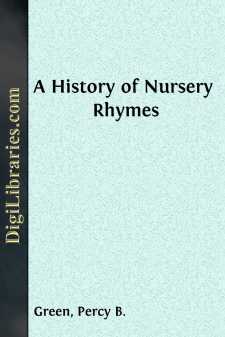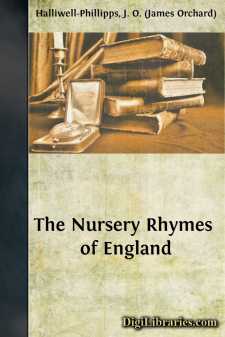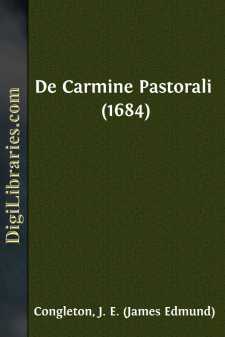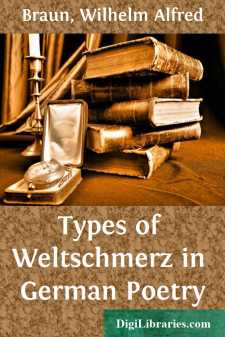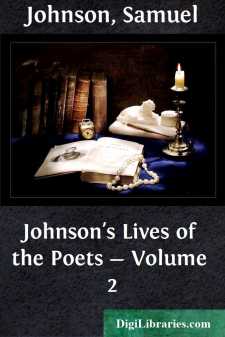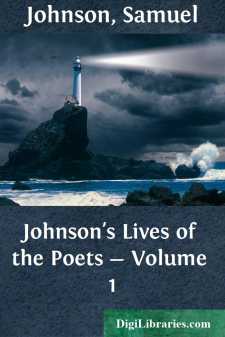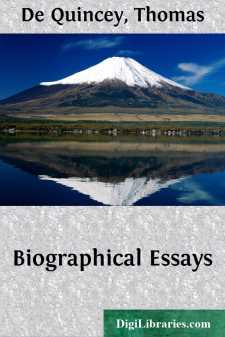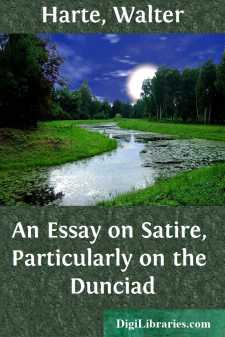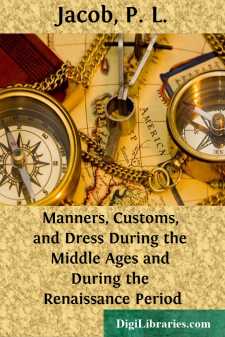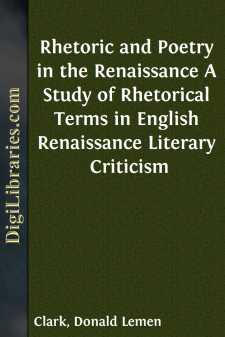Literary Criticism
- American 18
- Ancient and Classical 3
- Asian 1
- Australian & Oceanian 1
- Books & Reading 8
- Caribbean & Latin American 2
- Drama 2
- English, Irish, Scottish, Welsh 49
- European 7
- General 37
- Horror 1
- Humor 2
- Jewish 2
- Medieval 2
- Middle Eastern 3
- Poetry 7
- Renaissance 6
- Russian & Former Soviet Union 1
- Shakespeare 27
Literary Criticism Books
Sort by:
by:
Percy B. Green
CHAPTER I. "The scene was savage, but the scene was new." Scientists tell us many marvellous tales, none the less true because marvellous, about the prehistoric past. Like the owl in the preface, they are not discouraged because the starting-point is beyond reach; and we, like the cat, should try to awaken our interest when evidences are presented to us that on first hearing sound like the...
more...
I. LD King Cole Was a merry old soul, And a merry old soul was he; He called for his pipe, And he called for his bowl, And he called for his fiddlers three. Every fiddler, he had a fiddle, And a very fine fiddle had he; Twee tweedle dee, tweedle dee, went the fiddlers. Oh, there's none so rare, As can compare With King Cole and his fiddlers three! [The traditional Nursery Rhymes of England...
more...
The First Part. TO be as short as possible in my discourse upon the present Subject, I shall not touch upon the Excellency of Poetry in general; nor repeat those high Encomiums, (as that tis the most divine of all human Arts, and the like) which Plato in his Jone, Aristotele in his Poetica, and other Learned men have copiously insisted on: And this I do that I might more closely and briefly pursue my...
more...
CHAPTER I Introduction The purpose of the following study is to examine closely certain German authors of modern times, whose lives and writings exemplify in an unusually striking degree that peculiar phase of lyric feeling which has characterized German literature, often in a more or less epidemic form, since the days of "Werther," and to which, at an early period in the nineteenth century,...
more...
by:
Samuel Johnson
INTRODUCTION. This volume contains a record of twenty lives, of which only one—that of Edward Young—is treated at length. It completes our edition of Johnson's Lives of the Poets, from which a few only of the briefest and least important have been omitted. The eldest of the Poets here discussed were Samuel Garth, Charles Montague (Lord Halifax), and William King, who were born within the years...
more...
by:
Samuel Johnson
INTRODUCTION. Johnson's "Lives of the Poets" were written to serve as Introductions to a trade edition of the works of poets whom the booksellers selected for republication. Sometimes, therefore, they dealt briefly with men in whom the public at large has long ceased to be interested. Richard Savage would be of this number if Johnson's account of his life had not secured for him...
more...
SHAKSPEARE.[Endnote: 1] William Shakspeare, the protagonist on the great arena of modern poetry, and the glory of the human intellect, was born at Stratford-upon-Avon, in the county of Warwick, in the year 1564, and upon some day, not precisely ascertained, in the month of April. It is certain that he was baptized on the 25th; and from that fact, combined with some shadow of a tradition, Malone has...
more...
by:
Walter Harte
INTRODUCTION Since the first publication of Walter Harte's An Essay on Satire, Particularly on the Dunciad,[] it has reappeared more than once: the unsold sheets of the first edition were included in A Collection of Pieces in Verse and Prose, Which Have Been Publish'd on Occasion of the Dunciad (1732), and the Essay is also found in at least three late eighteenth- or early nineteenth-century...
more...
by:
P. L. Jacob
Preface. he several successive editions of "The Arts of the Middle Ages and Period of the Renaissance" sufficiently testify to its appreciation by the public. The object of that work was to introduce the reader to a branch of learning to which access had hitherto appeared only permitted to the scientific. That attempt, which was a bold one, succeeded too well not to induce us to push our...
more...
Chapter IIntroductory By definition the renaissance was primarily a literary and scholarly movement derived from the literature of classical antiquity. Thus the historical, philosophical, pedagogical, and dramatic literatures of the renaissance cannot be accurately understood except in the light of the Greek and Roman authors whose writings inspired them. To this general rule the literary criticism of...
more...


